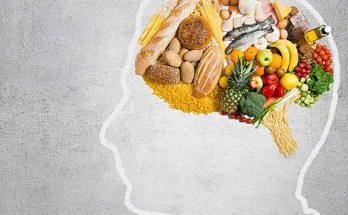
In the fast-paced world we live in, where information overload and constant multitasking are the norm, maintaining optimal cognitive function is paramount. As we navigate the complexities of daily life, our brains require a powerhouse of nutrients to perform at their best. In this article, we’ll dive into the realm of nutrient-rich foods that go beyond merely satisfying hunger—they’re the key to unlocking our cognitive potential. Nutrient-Rich Foods for Enhancing Cognitive Function
Understanding the Cognitive Puzzle:
Our brains are remarkable, intricate puzzles, and every piece plays a crucial role in ensuring smooth cognitive function. From memory and concentration to problem-solving, various aspects contribute to our overall cognitive abilities. To keep this cognitive machinery in top condition, it’s essential to nourish it with the right fuel.
Fueling the Brain with Omega-3 Fatty Acids:
Omega-3 fatty acids are the superheroes of brain health. Found in fatty fish like salmon, walnuts, and chia seeds, these fatty acids are essential for building and maintaining brain cell membranes. Google search LSI: “omega-3 fatty acids benefits for brain health.”
Related Search: “How much omega-3 fatty acids do I need daily?”
Answer: The recommended daily intake of omega-3 fatty acids varies, but a general guideline suggests consuming at least two servings of fatty fish per week. However, individual needs may differ, so consulting with a healthcare professional is advisable.
Empowering Brain Function with Blueberries:
Blueberries, often referred to as “brain berries,” are rich in antioxidants that may delay brain aging and improve memory. These tiny, flavorful fruits are not only delicious but also packed with vitamins and minerals essential for cognitive health.
Related Search: “Are there other berries that boost cognitive function?”
Answer: Yes, strawberries, blackberries, and raspberries also contain antioxidants and vitamins that contribute to cognitive health. Including a variety of berries in your diet can provide a spectrum of cognitive benefits.
Elevating Concentration with Dark Chocolate:
Good news for chocolate enthusiasts—dark chocolate can be a delightful ally in promoting cognitive function. Rich in flavonoids, dark chocolate enhances blood flow to the brain, aiding in alertness and concentration.
Related Search: “How much dark chocolate is beneficial for cognitive function?”
Answer: Consuming moderate amounts of dark chocolate, preferably with higher cocoa content, can be beneficial. Aim for one to two ounces per day to enjoy its cognitive-boosting effects.
Powering Up with Broccoli and Leafy Greens:
Vegetables like broccoli and leafy greens, including spinach and kale, are high in antioxidants and vitamin K, essential for forming sphingolipids—a type of fat densely packed into brain cells.
Related Search: “What other vegetables besides broccoli are good for brain health?”
Answer: Cauliflower, Brussels sprouts, and asparagus are excellent choices, offering a variety of nutrients that support overall brain health.
Boosting Memory with Pumpkin Seeds:
Pumpkin seeds are a small but mighty snack that packs a punch when it comes to cognitive benefits. Rich in magnesium, iron, zinc, copper, and manganese, these seeds contribute to brain function and help combat cognitive decline.
Related Search: “How can I incorporate pumpkin seeds into my diet?”
Answer: Sprinkle pumpkin seeds on salads, yogurt, or enjoy them as a standalone snack. They add a delightful crunch while providing a nutrient boost.
Conclusion:
In the journey to enhance cognitive function, the role of nutrient-rich foods cannot be overstated. Incorporating a diverse range of foods, from omega-3-rich fish to antioxidant-packed berries and brain-boosting vegetables, creates a holistic approach to cognitive well-being. As we savor these delicious and nutritious options, we not only treat our taste buds but also fuel our brains for the challenges that lie ahead.
Read More
- Zymoxotic Pet Ear Treatment with Hydrocortisone
- Unraveling the Mystery: Can Pet Insurance Drop You?
- The Crunchy Conundrum: Can Pet Rabbits Munch on Cucumbers?
- Top 10 Nigerian Hairdo for Beautiful Ladies
Frequently Asked Questions (FAQs):
- Is there a specific diet plan for improving cognitive function?While there is no one-size-fits-all diet plan, incorporating a variety of nutrient-rich foods, as discussed in this article, can contribute to enhanced cognitive function.
- Can supplements replace the benefits of nutrient-rich foods for cognitive health?While supplements can be beneficial, they should complement, not replace, a well-balanced diet. Whole foods provide a spectrum of nutrients that work synergistically for optimal health.
- Are there any foods to avoid for better cognitive function?Highly processed foods, excessive sugar, and unhealthy fats may negatively impact cognitive function. It’s advisable to focus on a balanced diet with whole, nutrient-rich foods.
- How long does it take to see improvements in cognitive function through diet?The timeline for experiencing cognitive improvements can vary. Consistency is key, and it may take weeks to months of a healthy diet to notice significant changes.
- Are there specific recipes that incorporate these cognitive-enhancing foods?Yes, numerous recipes cater to incorporating these foods into a delicious and brain-boosting meal plan. Explore cooking websites or consult with a nutritionist for creative and healthy recipes.


